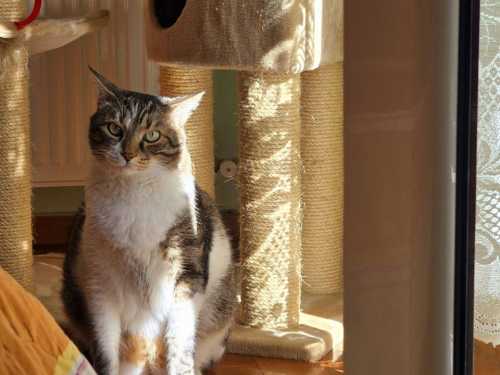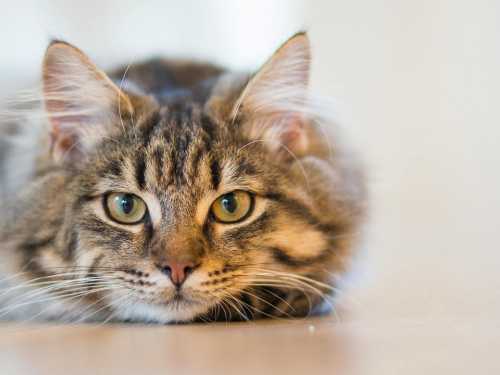
It is known that the life expectancy of street cats is much shorter than that of domestic cats.
When a person takes home a pet, it is assumed that they provide it with proper care, which means that the cat will live a long and happy life.
However, things are not always perfect for animals that have owners.
And sometimes a person, unwittingly or through ignorance, becomes the reason why their pet cat does not live as long as they would like.
Of course, each case is individual, it all depends on the cat itself and its health.
However, there are several factors that can shorten a cat's lifespan in one way or another.
Food and water
We can talk about nutrition for a long time, but all cat owners already know how to best feed their cat, what they can and can't eat. Poor-quality food definitely doesn't contribute to a cat's health. Natural or industrial food – each owner chooses for himself what is best for his cat.
The most important thing is that the selected diet takes into account all the characteristics of the animal and in no case harms it. After all, even the most expensive food can cause allergies, and it is extremely unwise to feed a purebred cat low-quality products from your table. For example, it is vital for cats to receive a sufficient amount of taurine with food, as its deficiency can lead to serious problems with the heart and vision. Therefore, never feed a cat dog food that does not contain taurine in the required amount. You should also avoid foods that are harmful to cats: chocolate, onions, garlic, grapes, raisins, avocados and bones, which can cause poisoning or injury.
In addition, the cat must drink clean water from a clean bowl, especially if it mainly eats dry commercial food.
If your pet drinks little or drinks stale water, water with a large number of harmful impurities, then it is quite likely that he will develop various diseases, for example, such as urolithiasis.
Free range
Shortens the lifespan of a domestic cat and self-walking. This is an obvious danger for the pet. On the street, there is a very high probability of catching various infections from other animals, getting hit by a car, getting seriously injured, eating something harmful, etc.
Stress
Another factor that prevents a cat from living a long and happy life is stress.
Yes, a cat can also be stressed at home. And a long stay there has a detrimental effect on the health of the furry creature.
Constant loud noises, renovations, an endless stream of guests who pet and grab the cat at any time of the day – all this is stress for the animal.
In addition, a nervous state can be caused by the appearance of another pet, which will be characterized by excessive activity and fussiness. To minimize stress from new circumstances, it is important to act thoughtfully. For example, in the case of a new pet, organize a gradual introduction, providing each animal with a separate safe space and the opportunity to adapt. It is also worth preparing for the arrival of guests: provide the cat with a quiet place where it can hide if it feels uncomfortable, and ask the guests not to impose their attention on it. This will help maintain the peace and comfort of your furry friend.
And as we know, chronic stress can significantly weaken the immune system and provoke exacerbation of existing or emergence of new diseases. So in a cat, against the background of such a prolonged uncomfortable state, various hidden diseases can make themselves felt, numerous diseases can arise or worsen.
Thus, a person who takes home a cat to provide it with a satisfying and long life in warmth and love may unwittingly cause the pet to live much shorter than its allotted time. Well, to prevent this from happening, you need to take into account all the basic needs of your pet, provide it with comfortable living conditions and, of course, love it.
To fully understand your pet's individual needs and ensure they live the best possible life, it is always recommended to consult your veterinarian regularly. A specialist will help you choose the optimal diet, create a vaccination and deworming plan, and promptly identify and prevent possible health problems that are unique to each cat.





